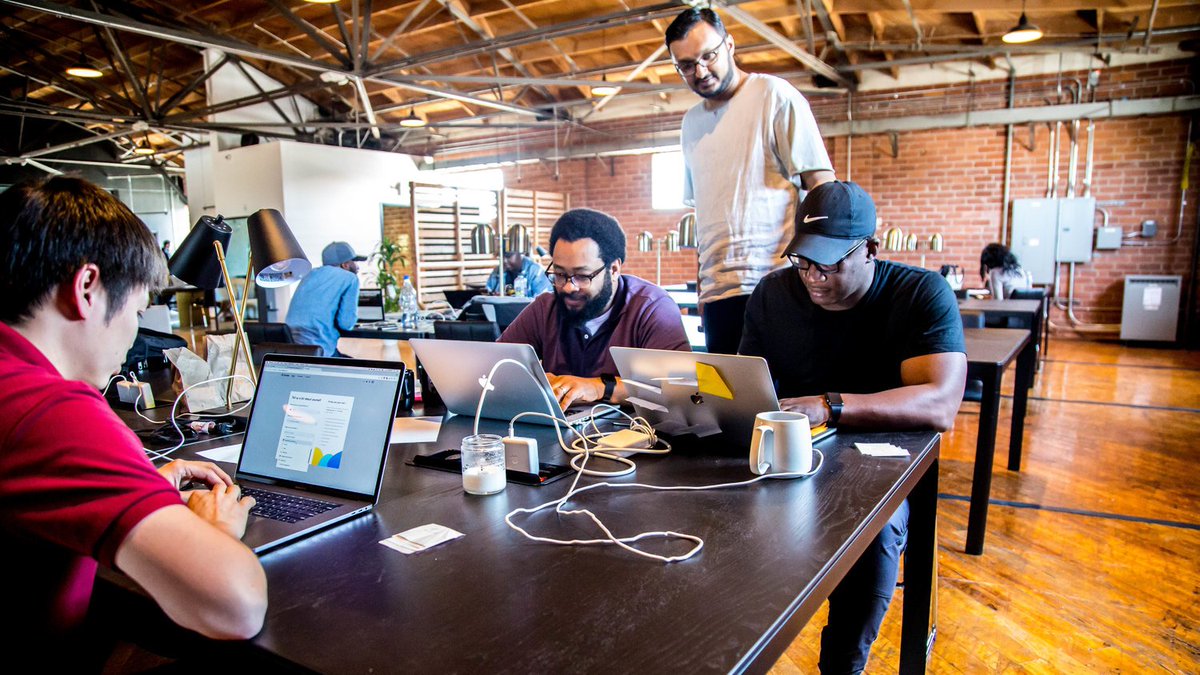New Harvard Social Entrepreneurship Track Competition Finalists Announced

Each year, the Harvard Business School New Venture Competition brings together the best and the brightest to compete for $300,000 in cash prizes. Designed for both HBS students and alumni, the competition offers two tracks: the Business Track and the Social Enterprise Track. Both tracks require teams to present a new venture idea that will have a substantial impact on their respective market. Winners have the opportunity to go ahead and implement their proposal using the provided seed money.
For 2019, 48 teams from across Harvard University applied for the Social Enterprise Track. Then, sixteen semifinalists were chosen to present their ideas to a panel of expert judges in their fields. Finally, four finalists were selected. Here’s who they are.

Gramhal
Presented by Vikas Birhma (HKS 2019) and Pankaj Mahalle, Gramhal offers post-harvest services of storage, credit, and market linkage for smallholder farmers. Having witnessed the problems that smallholder agricultural households in India face first hand, the team came up with an idea to help farmers keep more money by giving them the chance to save their harvest until they can sell it when prices are more favorable.
Hikma Health
Developed by Jordan Lebovic (HBS/HMS 2020), Senan Ebrahim (HMS 2021), Erik Grueter, and Zahra Allkhateeb, Hikma Health creates customized data management systems for healthcare providers caring for refugee patients. The idea initially started with a health education app for NGOs in Jordan. However, after talking to more health workers, the team realized that a free health data platform, tailored to refugees, would be far more valuable.
New Teachers Thriving
Created by Tyler Hester (HGSE 2020), Crystel Harris (HGSE 2021), and Akash Wasil, New Teachers Thriving offers training for early-career teachers. Many new teachers become burned out in their first years because they don’t have the training, support, and help they need to succeed. New Teachers Thriving is a year-long training sequence that will support new teachers as they navigate their first year in the classroom.
Vincere Health
Put together by Jacob Keteyian (HSPH 2019), Shalen De Silva (HSPH 2019), Ollie Osunkunle (HBS 2020), and Han Jin (HGSD 2019), Vincere Health helped people get paid for digitally proving health compliance while offering data control. The idea behind the product is to motivate health behaviors by offering daily rewards. In particular, they are attacking the smoking cessation market.
Read more from each of the finalist about entrepreneurship, concept creation and more on the HBS website.
This article has been edited and republished from its original source, Clear Admit.
Loyola Marymount Makes the ‘A-List’, Scholarships, and More – Los Angeles News

Let’s take a look at some of the biggest news coming out of the Los Angeles business school community from the past week.
Loyola Marymount ‘A-List’ Students Engage in Social Enterprise – LMU Newsroom
Loyola Marymount University’s business students gained exposure to some real world possibilities in social enterprise through a recent event at Vector90, which provides co-working space to underserved entrepreneurs.
The “Rethinking the Marketplace” course is part of the ‘A-List Pathway’ program (Applied Learning in Societal Transformation). Conceived by two LMU marketing professors, Mitch Hamilton and Julian Saint Clair, A-List motivates students to achieve the goals of both growing a business and creating positive change for their communities.
Dr. Saint Clair notes, “Part of LMU’s mission [is] educating the whole person and fighting for social justice.”
Hamilton and Saint Clair contacted developer David Gross and hip-hop artist Nipsey Hussle in coordinating the event at Vector90 earlier this month. The two spoke to students about how they could apply knowledge out of school for ventures such as Vector90. The discussion kicked off a competition for A-List students in which they will submit startup ideas for possible hosting and funding by Vector90.

The open office space of entrepreneurship enterprise Vector90 / Photo via Vector90
Located in the Crenshaw District of Los Angeles, Vector90, which Gross founded, allows members to collaborate with one another and with residents on community improvement projects and creative endeavors. Residents can also attend the center for support and mentorship opportunities.
You can read more about the event and the A-List Pathway here.
Cal State Long Beach Fall Scholarships Now Available – CSU Long Beach AcademicWorks
California State University, Long Beach College of Business Administration has announced its fall scholarships for 2018.
Two specific awards are open to MBA students: the John C. Molina MBA Scholarship (worth up to $3,000) and the Wan-Lin Kiang Endowed Scholarship for up to $1,500. While many of the awards are offered only to undergrads, multiple scholarships are open to any student in the business school.
The Cal State Long Beach scholarship deadline is September 27, 2018. More information on donors can be found here.
Americans Want to Believe Jobs Are the Solution to Poverty. They’re Not. – NY Times
Princeton University sociologist Matthew Desmond’s newest, all-consuming piece for the New York Times, entitled “Americans Want to Believe Jobs Are the Solution to Poverty. They’re Not” illuminates a profound disconnect that many American labors feel, despite routine record-breaking stock evaluations and near full-employment.
U.S. unemployment is down and jobs are going unfilled. But for people without much education, the real question is: Do those jobs pay enough to live on?#Employment | #Wageshttps://t.co/7Q8ReiKWJT
— UCLA Anderson (@uclaanderson) September 12, 2018
Desmond writes, “These days, we’re told that the American economy is strong. Unemployment is down, the Dow Jones industrial average is north of 25,000 and millions of jobs are going unfilled. But for people like Vanessa, the question is not, Can I land a job? (The answer is almost certainly, Yes, you can.) Instead the question is, What kinds of jobs are available to people without much education? By and large, the answer is: jobs that do not pay enough to live on.”
He goes on to note that much of the conversation is bogged by political and cultural assumptions that are simply not statistically correct. For instance, the majority of the 7.6 million “working poor” Americans (those who spend at least half the year working or looking for work, that earn below the poverty line) are over the age of 35, and, as Desmond writes, “not primarily teenagers bagging groceries or scooping ice cream in paper hats.”
Despite modern data, the assumptions of poverty are still incredibly pervasive.
“According to a 2016 survey conducted by the American Enterprise Institute, nearly two-thirds of respondents did not think most poor people held a steady job; in reality, that year a majority of non-disabled working-age adults were part of the labor force. Slightly over one-third of respondents in the survey believed that most welfare recipients would prefer to stay on welfare rather than earn a living. These sorts of assumptions about the poor are an American phenomenon. A 2013 study by the sociologist Ofer Sharone found that unemployed workers in the United States blame themselves, while unemployed workers in Israel blame the hiring system. When Americans see a homeless man cocooned in blankets, we often wonder how he failed. When the French see the same man, they wonder how the state failed him.”
As well, the understanding of what is modern full-time employment has become largely stilted, he argues. “Nearly 40 percent of full-time hourly workers know their work schedules just a week or less in advance,” he says. “And if you give it your all in a job you can land with a high-school diploma (or less), that job might not exist for very long: Half of all new positions are eliminated within the first year. According to the labor sociologist Arne Kalleberg, permanent terminations have become ‘a basic component of employers’ restructuring strategies.'”
You read the rest of Demond’s story in the New York Times magazine edition here.
3 Washington DC Nonprofit MBA Programs You Need To Know

It’s fair to say that the finance and consulting industries are the most popular for business school grads. But what about non-profits and social enterprises—where do they rank? While some assume that an MBA and working for a nonprofit do not go hand-in-hand, that’s not the case.
According to Fast Company, the nonprofit sector is the third-largest segment of the U.S. workforce, employing more than 13.7 million people at 1.8 million organizations, accounting for 10 percent of the country’s total workforce. The sector is the seventh-largest economy in the world—with combined assets of nearly $3 trillion, the U.S. nonprofit sector is larger than the economies of Brazil and Russia, and its neighbor to the north is taking notice. According to Nonprofit HR, in 2015, 50 percent of nonprofits were hiring compared to just 34 percent of for-profits. Nonprofit wages have also increased by 29 percent between 2000-10 and continue to rise, and exciting jobs in the sector are perfect for MBAs.
Some schools run entire centers and initiatives dedicated to the idea of social change. Other schools offer social entrepreneurship coursework, concentrations and graduate certificates with their MBA program. Here’s our rundown of three nonprofit MBAs in the Washington DC metro.
George Washington University School of Business
Students enrolled in the GWSB MBA program may combine their advanced business degree with a graduate-level certificate. One certificate program offered by the school is the Graduate Certificate in Nonprofit Management. This program is intended for students hoping to advance their careers in the nonprofit sector, as well as students who want to expand their knowledge but who do not want to commit to a master’s degree program.
The certificate requires that students complete 12 credit hours and maintain at least a 3.0 grade point average in order to be awarded the Graduate Certificate. Sample coursework includes:
- PPPA 6031 – Governing and Managing Nonprofit Organizations
- PPPA 6032 – Managing Fund Raising and Philanthropy
- PPPA 6016 – Public and Nonprofit Program Evaluation
- PPPA 6033 – Nonprofit Enterprise
- PPPA 6034 – Managing Nonprofit Boards
- PPPA 6053 – Financial Management for Public, Nonprofit, and Health Organizations
- PPPA 6058 – International Development NGO Management
The Graduate Certificate in Nonprofit Management program is available at the George Washington University’s main campus in downtown Washington DC.. Certificate students enroll in regular courses of the Trachtenberg School and earn graduate credit. Regular graduate tuition and fees apply.
Kogod School of Business – American University
The Kogod School of Business at American University also offers a Graduate Certificate in Nonprofit Management. According to the school, the certificate provides those currently working in the nonprofit sector a program combining both academic rigor and skill set training to enhance their performance in this growing work sector, as well as a foundation for master’s degree students about to enter the field.
The certificate program requires 18 credit hours of approved coursework with at least 9 credit hours at or above the 600-level and encompasses course offerings from the School of Public Affairs, the Kogod School of Business, and the School of Communication, as well as select coursework from the School of International Service and the College of Arts and Sciences.
Sample coursework includes:
- ACCT-607 – Financial Accounting
- FIN-630 – Financial Analysis of the Firm: Concepts and Applications
- COMM-642 – Strategic Communication Management
- MGMT-609 – Management of Organizations and Human Capital
- MGMT-633 – Leading People and Organizations
- PUAD-681 – Managing Nonprofit Organizations
University of Maryland R.H. Smith School of Business
The UMD Smith Dingman Center of Entrepreneurship and Center for Social Value Creation offer several different venues and opportunities for students to explore social entrepreneurship. According to the school, the Center for Social Value Creation was founded in 2009 and aims to educate, engage and empower Smith students to employ business principles that help not just the bottom line, but also the world. You can learn more about the UMD Smith Center for Social Value Creation here.
Students can pitch business ideas with a social mission through the Center’s Pitch Dingman program, or receive support and resources for their own social enterprises. The Center for Social Value Creation offers graduate coursework in social entrepreneurship at both the undergraduate and graduate levels, and leads Social Innovation Fellows, a one-year program that gives Smith School undergraduate students hands-on opportunities to seek innovative solutions for social and environmental challenges through the application of business principles.
To learn more about using your MBA for a nonprofit career, take a look at our “Should MBAs Work in the Nonprofit Sector” post. Check out our list of the top 10 nonprofit MBA programs in the country for even more options and information.
Gabelli Addresses Sustainability and Social Entrepreneurship, Wins AACSB Award

Gabelli School of Business recently celebrated the school’s win at AACSB Award winning 2017 Innovations That Inspire initiative, created to “shine a spotlight on a variety of ways that business schools are changing the face of business education.”
Sloan Prof Discusses New Free Innovation Paradigm for Entrepreneurship

MIT Sloan recently published an article about Free Innovation, a new book from Professor Eric von Hippel that examines how innovation is increasingly coming from “individuals creating gadgets and apps around the world for self-rewards” and less from profit-driven entrepreneurs.
Haas Student Startups Snag Dean’s Seed Fund

UC Berkeley’s Haas School of Business recently published an article about this spring’s round of Dean’s Seed Fund grants, which awarded 11 student startups instead of the usual ten.
